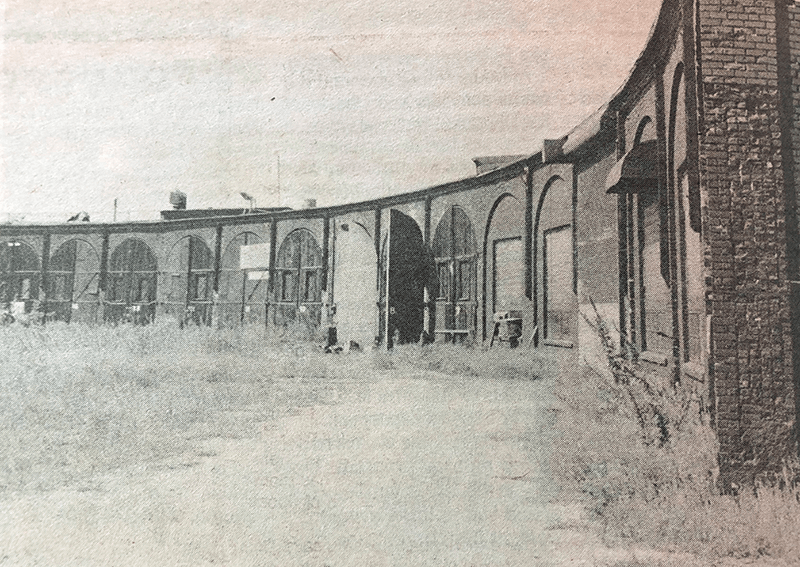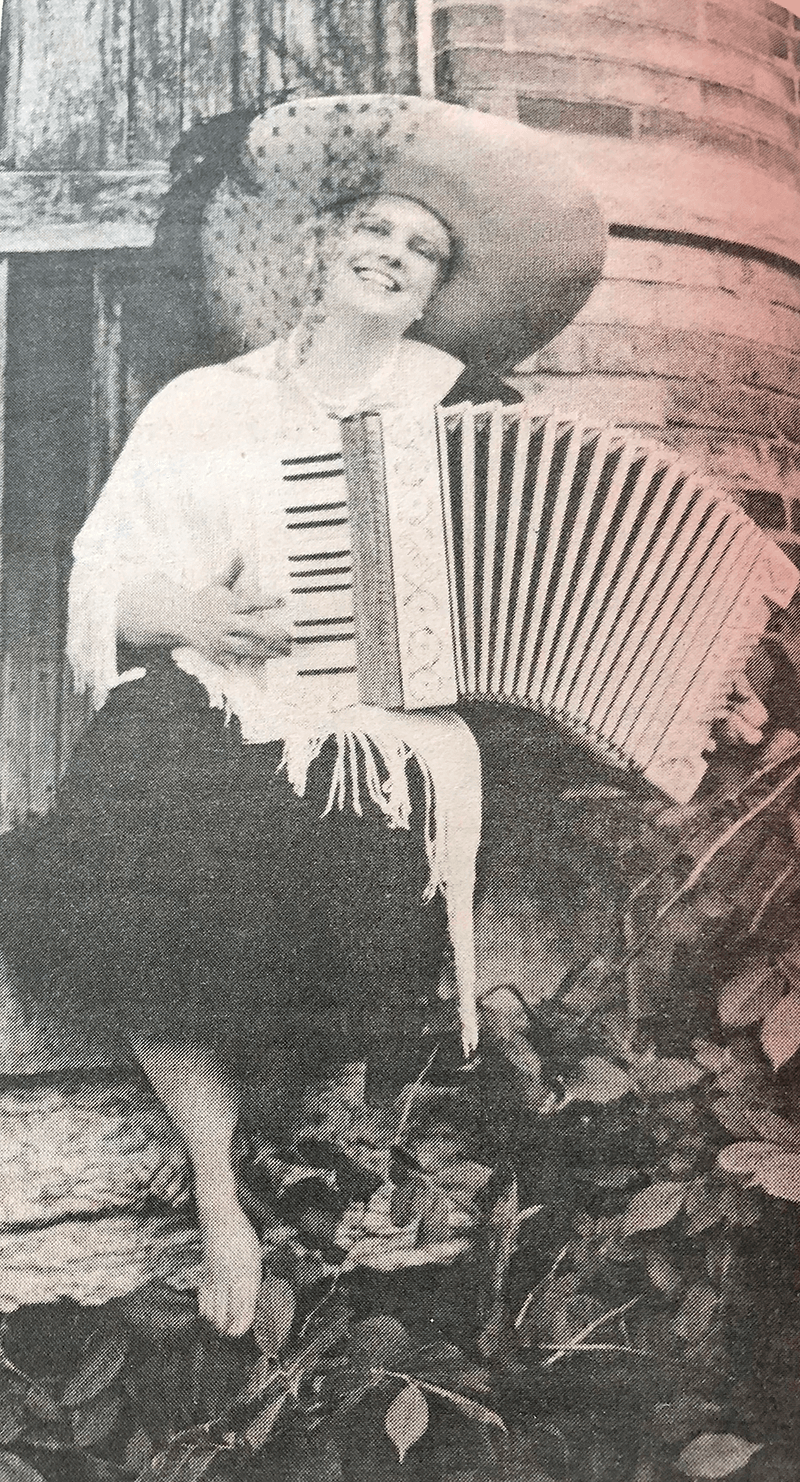At the end of the 20th century, a computer coding problem was predicted to unleash havoc around the world because most programs were designed to abbreviate years to two digits. The fear was that computers might interpret the year 2000 as 1900. Near hysteria developed as people thought their bank accounts, medical records and real estate records would disappear. IT departments went into overdrive to correct the error in their mainframe computers, thought to be the most vulnerable part of a network. On December 31, 1999, people went to bed wondering what the new year would bring— if it happened at all.
January 1, 2000 dawned crisp and cold and no different from any other New Year’s Day. We went back through the Northeaster’s files to see what really did happen during Y2K.
January: Columbia Heights was roiled by unsigned letters that urged residents to vote no on a community center referendum. The letters were sent by former mayor Joe Sturdevant. The Anoka County attorney was asked to determine if the letters violated state election laws.
The Minneapolis Public Library tabled plans to merge the library on Central Ave. with one in Southeast Minneapolis.
A neon sign advertising Sex World affixed to the top of the old Land-O-Nod mattress factory on Broadway and Central was ordered removed, to the relief of neighbors in the Beltrami neighborhood. The sign had to be down by June.
The Minneapolis Parks and Recreation Board (MPRB) had two sites under consideration for an off-leash dog park, one near 37th and University, the other near Honeywell on Ridgeway Pkwy.
February: An accordion festival — how Northeast is that? The Minnesota Accordion Club held a festival at — where else? — Kramarczuk’s Eastern European Deli on East Hennepin.
Minnesota legislators discussed the pros and cons of a one-house legislature, promoted by Gov. Jesse Ventura. Sen. John Marty, St. Anthony, and Reps. Phyllis Kahn, Southeast Minneapolis, and Len Biernat, Northeast, debated the issue.
An environmental review of the Kondirator, a metal-shredding machine, was passed, and American Iron Supply (AIS, later Northern Metals) made plans to install the machine at its plant on the west side of the Broadway Avenue Bridge. An “Above the Falls” plan to turn the riverfront into a park with an amphitheater was dealt a temporary setback. Northern Metals finally closed its yard and moved to Becker, Minn., in 2019. The Minneapolis City Council approved $350 million for the construction of the Upper Harbor Terminal park.
March: In “Money up for grabs,” Mike Anderson described a scramble by neighborhood associations to receive funds from the Neighborhood Revitalization Program.
Columbia Heights Public Schools advertised all-day kindergarten at Highland, Valley View and North Park schools.
Ballet of the Dolls announced a move to Northeast from Loring Park and a possible purchase of the Ritz Theater.
April: The City of Columbia Heights moved to start eminent domain proceedings against 4101 Central Ave. The building, a former Norwest Bank, was used by Families Moving Forward, a social services agency.
The Minneapolis City Council voted to let AIS install the Kondirator, after having spent 11 years and $9 million in taxpayers’ money to fight it.
State Rep. Mary Jo McGuire, who represented St. Anthony and part of Roseville, introduced a bill at the Legislature to ban sales and rentals of violent video games to kids.
May: “Northeast home values rocket up” was the lead story in the May 2 issue.
East Side Food Co-op had half the members it needed to go into business. They recruited more at the Northeast Farmers Market in the summer.
The Salvation Army looked for a buyer for its 294-acre camp on Silver Lake. It’s now known as Silverwood Park, owned by the Three Rivers Park District.
Art-A-Whirl® celebrated its fifth anniversary.
The St. Anthony West neighborhood planned to add three new single-family homes during the summer.
June: Waite Park homeowners were surprised by the cost of sidewalk repairs. In an understatement, Dan Bauer, sidewalk inspector, said, “It’s always an unpleasant shock.”
“Fantasia 2000” was showing at the Heights Theater.
July: Target and Home Depot consulted the neighbors before adding on to their stores at the Quarry. Windom Park and Northeast Park neighborhood leaders weren’t overly crazy about the storage of wooden pallets on the backsides of the stores.
Dave Wilson of Columbia Heights put on a Revolutionary War uniform and snagged a bit part in the Mel Gibson film, “The Patriot.”
Librarians at Northeast area libraries worried about losing federal funds for internet access because patrons were downloading pornography.
Heavy spring rains delayed the Edison Basin project, which was created after a “once in 500 years” flood the year before. Minneapolis Public Works workers were expected to return to work on the site in July.
August: The U. S. Postal Service conducted a study to see which mail collection boxes should be removed, calling it an efficiency measure.
The City of Minneapolis agreed to sell the Ritz Theater to Ballet of the Dolls for $1, with the stipulation that they raise funds for rehabilitation. The Sheridan Neighborhood Organization had set aside $75,000 for the theater and immediately gave Ballet of the Dolls $25,000 to fund a study. Rehab costs were estimated at $1.7 to $2 million.
The St. Anthony City Council appropriated $11,200 to allow Otting House Movers to remove the houses from 2700 and 2704 Pahl Ave. NE. The houses fell victim to catastrophic flooding the previous year. Two other houses were torn down.
September: Home Depot at the Quarry Shopping Center dropped a request to remain open 24/7.
Residents of the Holland neighborhood convinced Time Warner to relocate a cable TV hub somewhere other than 24th and Jackson. That site is now JAX Apartments.
Minneapolis and Canadian Pacific Railway were engaged in an argument over the roundhouse at Shoreham Yards on Central Ave. The city hoped to preserve the building and wanted to designate it as historic. The railroad said it was private property and the city should mind its own business. The fight went on for years; CPR tore the building down in 2019.
October: Workers cleaned up asbestos in the old Grain Belt brewing house. Asbestos cleanup occurred elsewhere in Northeast, after the Environmental Protection Agency inspected 100 different properties and found asbestos pollution on them.
Graco, Inc., announced the expansion of its Northeast campus.
A mosque at 907 26th Ave. NE was vandalized and burned in March 1999. Members of the Islamic community purchased property at 2534 Central Ave. NE and planned to use it as a youth and family center and a mosque.
November: After a summer of archeological excavations, the MPRB announced plans for Mill Ruins Park on the west bank of the Mississippi. In addition, the Minnesota Historical Society announced its plans for a museum about Minneapolis’ flour milling history, sited next to the park.
In a foreshadowing of diversity to come, Highland Elementary was teaching English as a second language to young students from Bosnia, Germany, Poland, India, Thailand, Somalia, Egypt and Sudan.
Ed Karbo, Jerry Herron and Joe Holewa began talks with MPRB about a memorial for service members. Years later, their efforts resulted in Sheridan Memorial Park.
Leaders in St. Anthony eyed the land beneath Apache Plaza and the Salvation Army Camp on Silver Lake and declared a moratorium on development to give them time to put together a comprehensive plan for the parcels.
December: Waste Management wanted to build a recycling center near Broadway Ave. and Johnson St. NE.
Residents and business owners in Sheridan, Bottineau and St. Anthony West voted on the development they liked best for the area surrounding the old Grain Belt Brewery. The developer of choice was Sheridan Development Co., LLC, which proposed 293 owner-occupied housing units, 46 of them available to people earning 80% of the average median income. The former Grain Belt office building was to contain office space; it opened in 2023 as The 1893 Grain Belt event center.
Northeast and Columbia Heights dealt with water main breaks as winter settled in and the holiday season began
The Canadian Pacific Railway’s Shoreham Yard roundhouse was a source of argument between the railway and the City of Minneapolis from 2000 until 2019, when CPR tore it down. Northeast resident Dee Langley led an Accordion Festival at Kramarczuk’s in February 2000. (Northeaster file photos)

